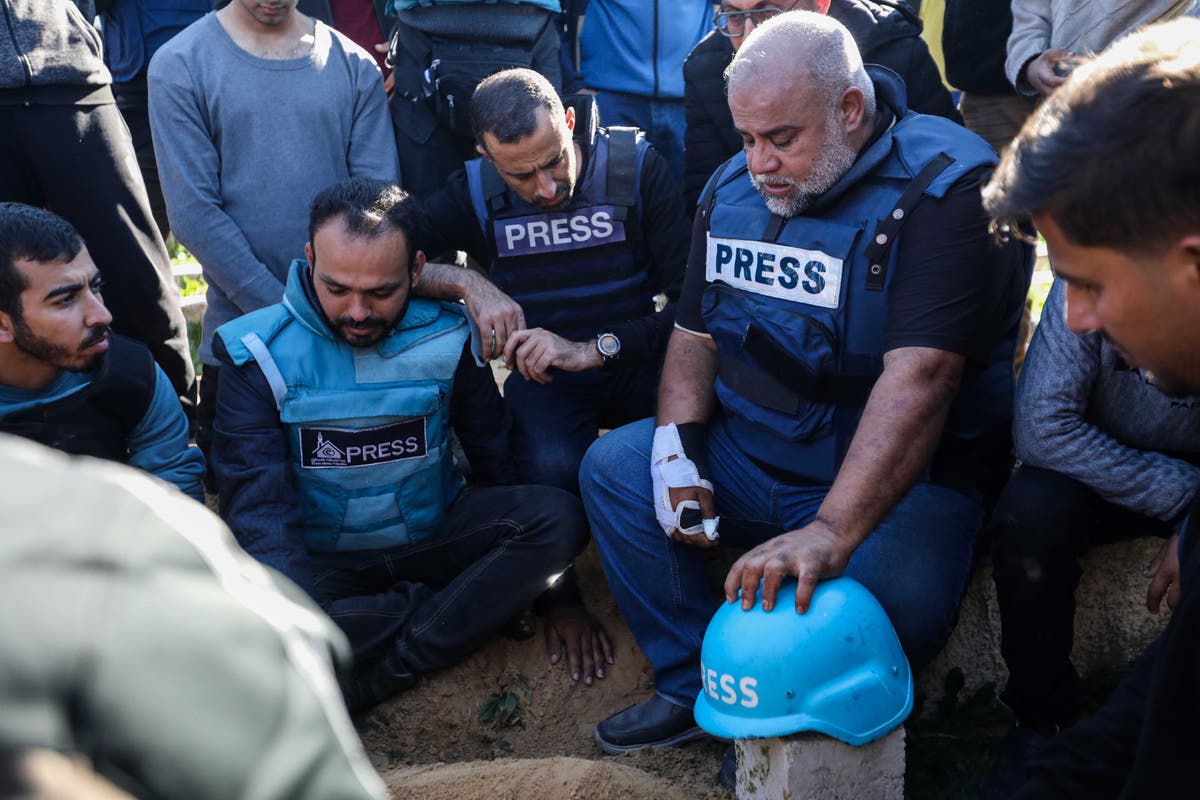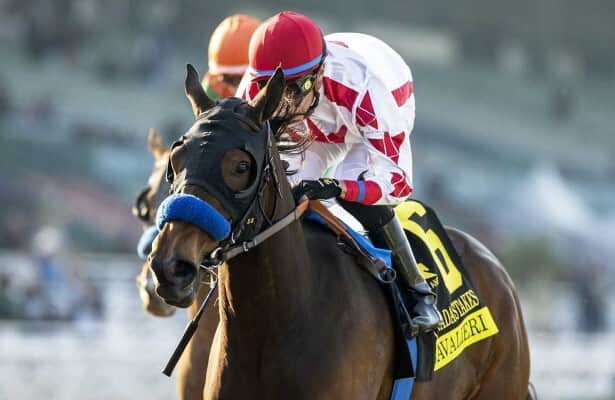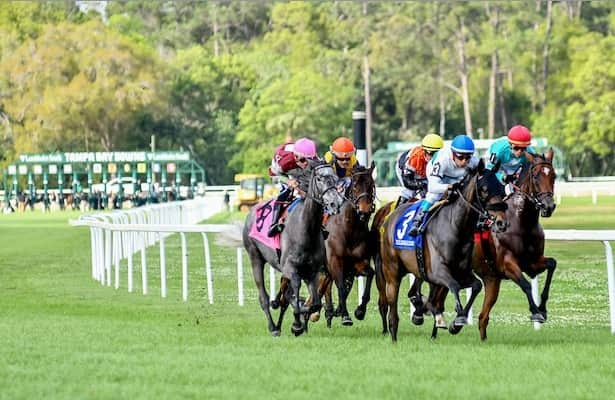An Al Jazeera reporter covering Israel’s war against Hamas from Gaza was back on air a day after burying his 27-year-old son who was reportedly killed in an Israeli strike on Sunday.
Hamza Al-Dahdouh, a Palestinian journalist, died alongside colleague Mustafa Thuraya following an air strike from the Israeli Defence Forces on a car near Rafah in southern Gaza, according to health officials in Gaza and the journalists’ union there.
A video posted on an Al Jazeera-linked YouTube channel showed senior reporter Wael Al-Dahdouh crying while sitting next to his son’s lifeless body, holding his hand. Later, after his son’s burial, he said in televised remarks that journalists in Gaza would keep doing their job.
“All the world needs to see what is happening here,” he said. “Hamza was everything to me, the eldest boy, he was the soul of my soul… these are the tears of parting and loss, the tears of humanity.”
This is not the only time Al-Dahdouh suffered personal loss while in the line of duty. A reporter for Al-Jazeera himself, he is particularly well known to viewers across the Middle East after he learned during a live broadcast that his wife, another son, daughter and grandson had been killed in an Israeli air strike in October. They died following an Israeli raid at a house in the Nuseirat refugee camp where the family was sheltering.
US secretary of state Antony Blinken said Sunday’s killings were an “unimaginable tragedy” and that he was “deeply, deeply sorry” for the Al-Dahdouh family’s loss.
“One (journalist killed) is far too many” Mr Blinken said at a press conference in Doha, the Qatari capital.
Meanwhile, as Al-Dahdouh returned on air, several journalists took to social media to hail his grit.
“His nickname in Arabic: the mountain (Al Jabal). Calm and strong, Wael Dahdouh, live from Gaza, after burying his eldest son, Hamza, killed in an Israeli strike,” Dima Khatib, the managing director of AJ+, wrote on X. “Wael had lost members of his family, including wife, 2 kids and grandchild earlier. He himself got injured too. Jabal,” she added.
“Wael Dahdouh back on air. I’m out of words to describe this man,” wrote Barry Malone, deputy editor-in-chief for Thompson Reuters.
Earlier, Al Jazeera Media Network condemned the killing of Al- Dahdouh’s son and Thuraya, calling it a deliberate attack.
“We urge the International Criminal Court, the governments and human rights organisations, and the United Nations to hold Israel accountable for its heinous crimes and demand an end to the targeting and killing of journalists,” the network said in a statement.
A statement from the Israeli military said that “an IDF aircraft identified and struck a terrorist who operated an aircraft that posed a threat to IDF troops”.
“We are aware of the reports that during the strike, two other suspects who were in the same vehicle as the terrorist were also hit,” the statement said.
In a statement on 16 December, in response to the death of another Al Jazeera journalist in Gaza, the Israeli army, said “the IDF has never, and will never, deliberately target journalists”.
The Israel-Hamas war that started on 7 October has been deadly for journalists. The Committee to Protect Journalists (CPJ), an international watchdog, said that as of Saturday, 77 journalists and media workers had been killed – 70 Palestinians, four Israelis and three Lebanese.
The Hamas-run Gaza government’s media office said the two new deaths raised its own tally of journalists killed by the Israeli offensive to 109.
Another journalist who died covering the conflict was Reuters visuals journalist Issam Abdallah. A Lebanese citizen, he was killed on 13 October by an Israeli tank crew while filming cross-border shelling in Lebanon, a Reuters investigation found.
Additional reporting by agencies












